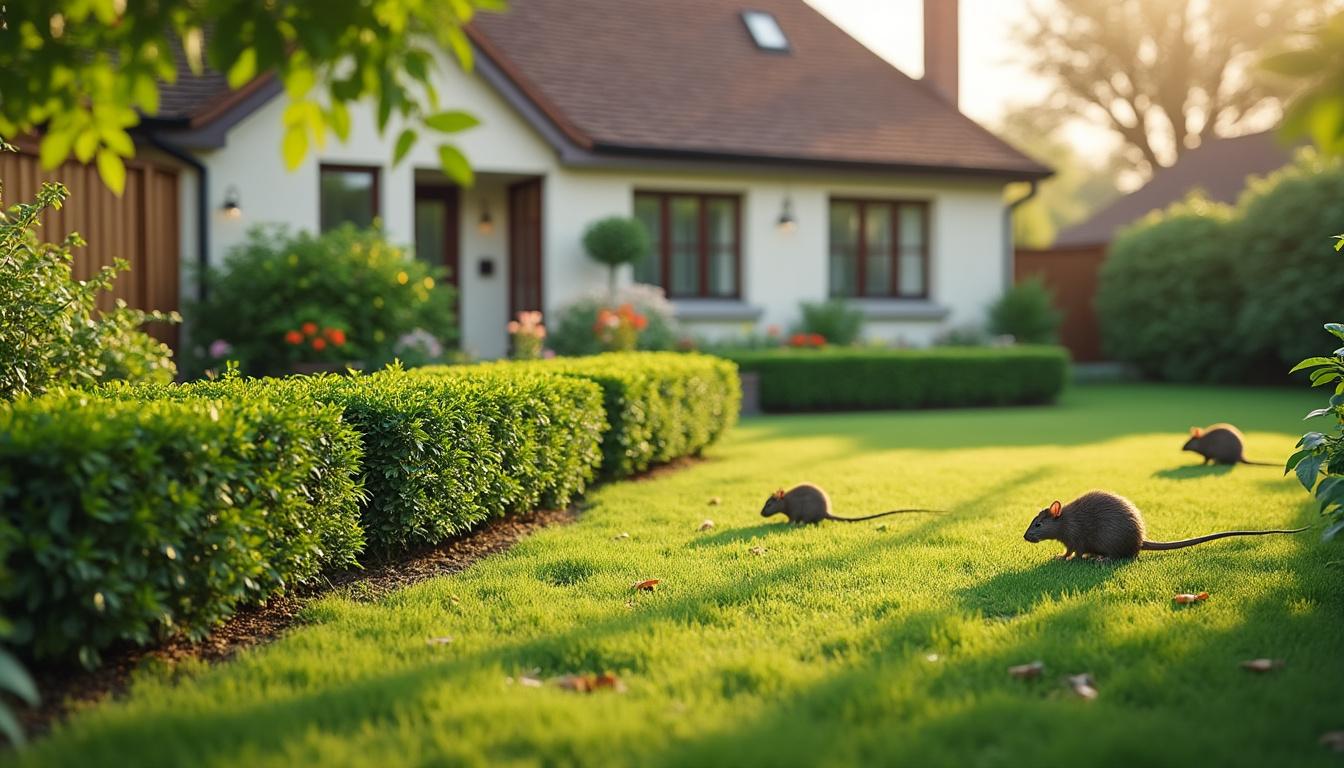Rats infiltrating homes and gardens remain a persistent challenge, urging homeowners and gardeners alike to adopt effective preventive measures. With the emergence of resilient “super rats” resistant to conventional poisons, the need for innovative, well-planned strategies is more critical than ever. Experts highlight that securing your environment by eliminating shelters, food, and water sources drastically reduces rodent attraction, ensuring both property safety and peace of mind.
Effective Strategies to Prevent Rats from Invading Your Home
Rodents seek warmth, shelter, and food, making homes prime targets during colder periods. A strategic approach incorporating both physical barriers and environmental management proves indispensable. Cleanup, repair, and deterrent measures create an inhospitable environment for rats, drastically limiting their intrusion.
Critical Actions Homeowners Must Take
- Clear All Rubbish and Debris: Accumulated garden waste and clutter provide ideal nesting sites for rodents. Removing these materials eliminates warm shelters.
- Seal Gaps and Holes: Rats can enter through openings as small as half an inch; sealing all potential entry points in walls, sheds, and plant pots is vital.
- Cover Drains and Grates: Ensure that all drainage points are intact and secure, preventing rats’ subterranean access.
- Remove Water Sources: Leaking taps, blocked drains, and water butts can sustain rat populations—fixing these reduces their habitat suitability.
- Maintain Compost Moisture: Moist compost heaps discourage rodent habitation compared to dry, warm piles.
These steps align with insights from industry leaders like HomeShield and ExclusionExperts, who emphasize structural integrity and environment control as core defenses.
| Action | Purpose | Key Benefit |
|---|---|---|
| Rubbish Removal | Eliminate nesting sites | Reduce rodent shelter availability |
| Gap Sealing | Block entry points | Stop rats from entering buildings |
| Drain Coverage | Prevent underground access | Limit infestations from below |
| Water Control | Deny hydration sources | Discourage rat settlement |
| Compost Management | Make environment less attractive | Reduce rat habitat feasibility |
Beyond structural measures, deploying natural repellents such as garlic powder or peppermint oil around vulnerable garden areas has proven effective. Pest management firms like RodentGuard and PestRepel cite strong scents as reliable deterrents helping to keep rats at bay.
Preventing Rats in Your Garden Environment
Gardens with fallen fruit, spilt birdseed, or clutter can become hotspots for rodents. Continuous vigilance and proactive maintenance are required to preserve garden sanctity.
Gardening Measures to Thwart Rat Intrusion
- Regularly Clean Around Bird Feeders: Fallen seeds attract rodents; cleaning reduces food availability.
- Use Wire Mesh Fencing: Install fences with buried mesh to physically block rat access.
- Store Pet and Livestock Feed Securely: Use metal containers to prevent rodent scavenging.
- Keep Fruit and Vegetable Waste Removed: Promptly harvest and dispose of fallen produce.
- Inspect Garden Weekly: Look for signs of burrows, droppings, or gnawing to act swiftly.
These practical tips are echoed by organizations such as GardenDefense and CritterControl, affirming that consistent upkeep is paramount to effective rodent prevention.
| Gardening Practice | Explanation | Impact |
|---|---|---|
| Clean Bird Feeders | Remove fallen seeds and bird food | Limits rat food sources |
| Fencing with Wire Mesh | Create physical barriers against rodents | Blocks rat entry |
| Secure Feed Storage | Prevent access to animal feed | Reduces food availability |
| Dispose Fallen Fruit | Remove attractants promptly | Deters rats from nesting |
| Weekly Garden Inspection | Early detection of rodent activity | Enables quick response |
Addressing the Challenge of Super Rats
A rising concern is the advent of “super rats,” strains exhibiting immunity to widely used poison baits. These rats pose heightened threats to traditional control methods and require adaptive responses.
Responding to Super Rat Infestations
- Implement Integrated Pest Management: Combine sanitation, physical exclusion, and selective chemical use.
- Update Control Products Regularly: Rotate rodenticide types to combat resistance.
- Engage Professional Services: Companies like PestX and RodentRanger specialize in tackling resistant rat populations.
- Monitor Effectiveness Closely: Adapt strategies based on observed control results.
- Educate Residents: Awareness of behaviors and preventive measures minimizes establishment opportunities.
| Strategy | Approach | Benefit |
|---|---|---|
| Integrated Pest Management | Multi-faceted control plan | Reduces resistance development |
| Product Rotation | Alternate rodenticides | Maintains effectiveness of treatments |
| Professional Intervention | Expert handling of infestations | Specialized solutions |
| Effectiveness Monitoring | Track control outcomes | Optimizes pest management |
| Resident Education | Raise awareness | Prevents rodent establishment |
For further guidance on pest-proofing your home naturally, consider resources like this comprehensive guide. Maintaining a rodent-free property enhances longevity and health of living spaces.
Supplementary Practical Tips for Rodent Prevention
- Install Rat-Proof Treadle Feeders: Specialized bird feeders minimize spillage, reducing rat attraction.
- Inspect Home Perimeters Annually: Routine professional inspections reveal subtle vulnerabilities.
- Use Environmentally Friendly Deterrents: Leverage options like those from EcoPest Solutions for sustainable management.
- Maintain Yard Tidiness Year-Round: Consistent lawn care discourages nesting.
- Keep Pet Food Indoors: Avoid leaving food outside overnight to prevent attracting rodents.
Remembering that prevention surpasses eradication is key. Staying informed through expert insights and trusted sites like home maintenance tips fosters proactive defense against rodent threats.
| Practical Tip | Benefit | Recommended Resource or Product |
|---|---|---|
| Rat-Proof Feeders | Limits food spillage | GardenDefense Equipment |
| Annual Inspections | Identify entry vulnerabilities | ExclusionExperts Services |
| Eco-Friendly Deterrents | Safe pest control | EcoPest Solutions |
| Yard Maintenance | Reduce nesting places | Daily gardening guides |
| Indoor Pet Food Storage | Prevents attracting rodents | RodentGuard advice |
Frequently Asked Questions About Rat Prevention
- What makes “super rats” different from common rats?
Super rats exhibit resistance to many standard rodenticides, making them harder to control with common poisons. - How small can rat entry points be?
Rats can enter holes as small as half an inch, so even tiny gaps should be sealed promptly. - Are natural repellents like garlic powder effective?
Yes, strong scents such as garlic powder and peppermint oil help deter rats when applied around potential entry zones. - Why keep compost heaps moist to deter rats?
Dry compost heaps provide warmth attractive to rats; moisture reduces suitability for nesting. - How often should garden inspections for rats occur?
Weekly inspections help in the early detection of rodent activity and allow timely intervention.

